
Panel Discussion: Career Development Grants - Insights and Strategies from HFES Members
Recorded On: 05/10/2023
-
Register
- Member - Free!
Are you an early-career faculty member or a graduate student interested in a career in academia planning to apply for career development programs? Join our remote panel, conducted by the HFES mentorship committee, to gain insights from experienced HFES members who have received career development grants.
Our panelists, including Dr. Myrtede Alfred from the University of Toronto, Dr. Richard Holden from Indiana University, Dr. Prashanth Rajivan from the University of Washington, Dr. Edmond Ramly from the University of Wisconsin – Madison, Dr. Leia Stirling from the University of Michigan – Ann Arbor, and Dr. Maryam Zahabi from Texas A&M University, will share their approaches and strategies for developing successful grant proposals. The panel will be moderated by Dr. Kapil Chalil Madathil from Clemson University.
The panel's aim is to help you build your career by providing a platform for networking, idea exchange, and guidance in your pursuit of career development grants such as the NSF Faculty Early Career Development (NSF CAREER) Program or NIH Research Career Development grants (K grants).
Don't miss this opportunity to learn from and interact with HFES members who have received career development grants!
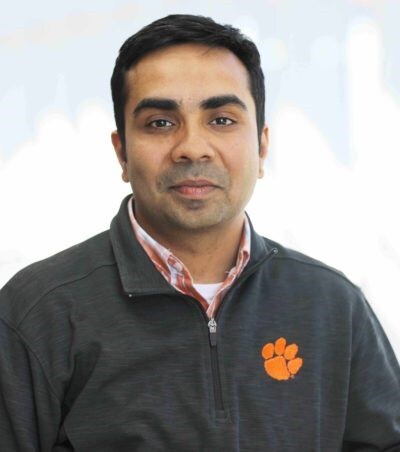
Dr. Kapil Chalil Madathil (Moderator)
Wilfred P. Tiencken Professor
Clemson
Kapil Chalil Madathil is the Wilfred P. Tiencken Endowed Professor at Clemson University with expertise in human factors applied to the design and operation of human-machine systems. He has received over $24 million in research grants from various organizations including the U.S. National Science Foundation, Department of Defense, and National Institutes of Health. Additionally, he teaches courses on human factors and ergonomics and is the Director of the Center for Workforce Development. He holds several editorial positions, including Associate Editor-in-Chief of the International Journal of Industrial Ergonomics and is a technical reviewer for 30 different journals.
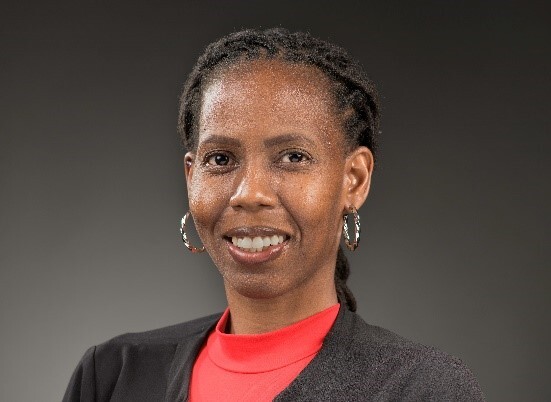
Dr. Myrtede Alfred
Assistant Professor of Mechanical & Industrial Engineering
University of Toronto
Dr. Myrtede Alfred is an Assistant Professor of Mechanical & Industrial Engineering at the University of Toronto. She received her PhD in industrial engineering from Clemson University in 2017, where she was a recipient of the SREB Dissertation Fellowship and Janine Bowen Graduate Fellowship. At Clemson, she earned several awards, including Outstanding Graduate Teaching Assistant and MLK Jr. Excellence in Service Award. As a human factors engineer, Professor Alfred focuses on the role of sociotechnical systems in clinical safety, including surgical instrument reprocessing, robotic-assisted surgery, anesthesia medication delivery, and retained foreign objects. She also investigates clinical systems' contributions to healthcare disparities, using the social determinants of health framework along with human factors and systems engineering approaches. Her research has important implications for improving clinical safety and reducing healthcare disparities, and her innovative approach makes her a valuable member of the academic community. Her research has been funded by the Agency for Healthcare Research and Quality, the Natural Sciences and Engineering Research Council (Canada), and she was also awarded a HFES Anti-racism/Anti-bias seed grant.
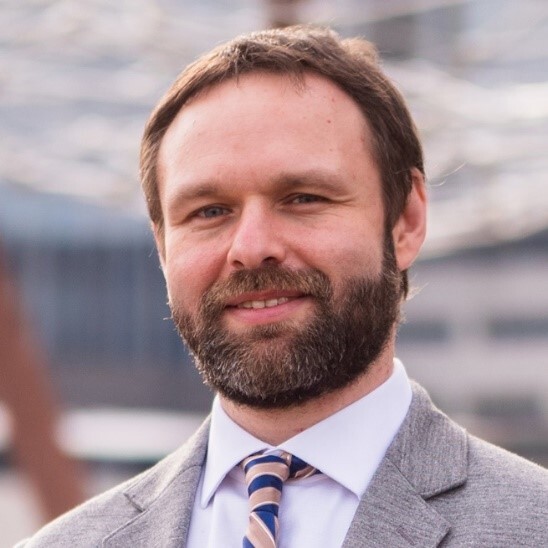
Dr. Richard Holden
Professor, Dean’s Eminent Scholar, and the inaugural Chair of the Department of Health & Wellness Design
Indiana University School of Public Health
Dr. Holden is a Professor, Dean’s Eminent Scholar, and the inaugural Chair of the Department of Health & Wellness Design at the Indiana University School of Public Health. He is also the Chief Healthcare Engineer of the IU Center for Health Innovation and Implementation Science, and a Scientist and Venture Fellow in the Regenstrief Institute. He has authored over 150 articles, books, and book chapters, focusing on the design and evaluation of interventions in healthcare, such as technologies, systems redesign, and team-based models of care. Dr. Holden has been continuously funded by NIH, including three NIH R01s, R21, R25, and R44, as well as leading and participating in interdisciplinary teams. He has mentored eight NIH-funded K-awardees and a total of 17 who submitted or finished K awards, with a focus on mentoring underrepresented minorities and women in STEM. Additionally, he is a faculty member on two training grants (T15 and T32), leads an R25 training grant, has received formal mentor training, and has worked on research with nearly 40 Master’s, PhD, and postdoctoral learners.
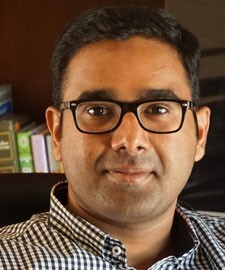
Dr. Prashanth Rajivan
Assistant Professor of Industrial and Systems Engineering
University of Washington
Dr. Prashanth Rajivan is an assistant professor of Industrial and Systems Engineering at the University of Washington, where his research focuses on the intersection of human factors, simulation modeling, and computer security. He received his Ph.D. in Human Systems Engineering and M.S. in Computer Science from Arizona State University. Dr. Rajivan was a Postdoctoral Research Fellow at Carnegie Mellon University before joining the University of Washington. Dr. Rajivan has received numerous awards for his work, including the National Science Foundation (NSF) CAREER award in 2022, and the best student paper award at the HFES annual conference in 2014 for his work on multi-agent models of teamwork in cyber defense. He is currently the chair of the cyber security technical group at HFES, co-chair for the 2022 USEC (Symposium of Usable Security and Privacy), and serves on the board of the Modeling and Simulation Society.
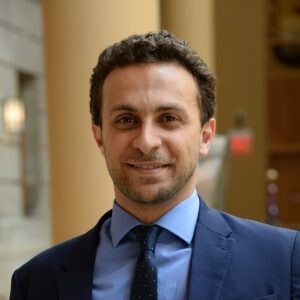
Dr. Edmond Ramly
Assistant Professor in Family Medicine and Community Health and Affiliate Faculty in Industrial and Systems Engineering
University of Wisconsin-Madison
Dr. Edmond Ramly is an Assistant Professor at the University of Wisconsin-Madison in Family Medicine and Community Health and Affiliate Faculty in Industrial and Systems Engineering. His work improves healthcare quality and workflows in outpatient and community-based settings through Implementation Science and Human Factors. His research drives care that is both evidence-based and human-centered by balancing standardization and adaptation to local context. Contributions include the design, implementation, and scale up of systems interventions including BP Connect and Quit Connect to prevent cardiovascular disease, OASIS to reduce antibiotics over-prescribing, and WCCEAL for statewide data-driven quality improvement. He is currently developing novel methods to streamline how evidence-based care is implemented and studying the consequences of telehealth expansion for health disparities. Dr. Ramly has served as program chair and chair of the Macroergonomics Technical Group of the Human Factors and Ergonomics Society and co-authored the AHRQ/NSF federal report on the intersection of industrial and systems engineering and health care.
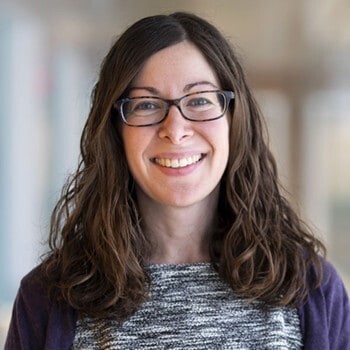
Dr. Leia Stirling
Associate Professor in Industrial and Operations Engineering and in Robotics
University of Michigan
Dr. Leia Stirling is an Associate Professor in Industrial and Operations Engineering and in Robotics at the University of Michigan, a Core Faculty in the Center for Ergonomics, an Affiliate Faculty in the U-M Space Institute, and the University of Michigan Center for Occupational Health and Safety Engineering (COHSE) Director of Occupational Safety Engineering and Ergonomics. Her research group brings together methods from human factors, biomechanics, and robotics to understand the physical and cognitive interactions for goal-oriented human task performance and to support operational decision making that relies on manual task performance. These goals may include reducing musculoskeletal injury risks, supporting telehealth, and improving technology usability. Her research has been funded by the National Science Foundation, NASA, NIOSH, Boeing, and the U.S. Army.
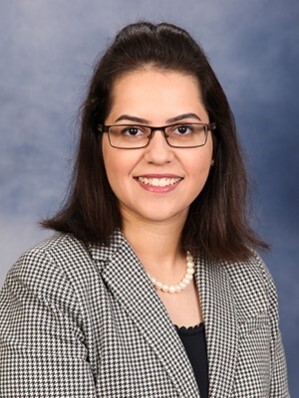
Dr. Maryam Zahabi
Assistant Professor, Wm Michael Barnes Department of Industrial and Systems Engineering
Texas A&M University
Dr. Maryam Zahabi is an assistant professor in the Wm Michael Barnes ’64 department of industrial and systems engineering at Texas A&M University. Her research focuses on human performance modeling with applications in assistive technologies and surface transportation. She received her PhD in industrial and systems engineering from North Carolina State University in 2017. Dr. Zahabi’s research has received support from agencies including the NSF, DARPA, and U.S. DOT. She is also the recipient of the 2021 NSF CAREER Award. Dr. Zahabi has published over 35 journal papers in the human systems engineering area and serves an associate editor for IEEE Transactions on Human-Machine Systems journal.